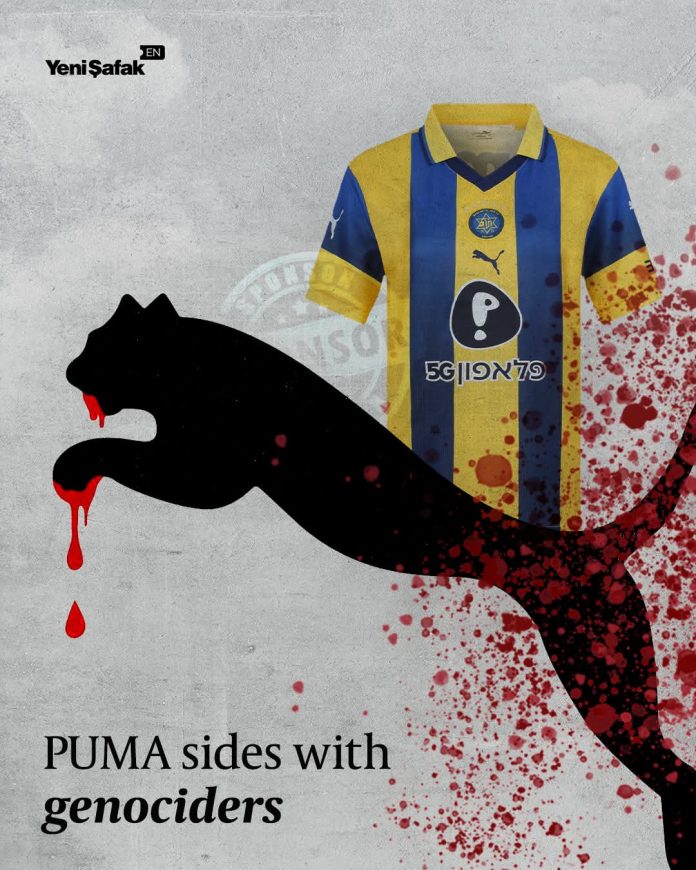Global sportswear giant Puma faces renewed criticism after its four-year sponsorship deal with Israeli football club Maccabi Tel Aviv resurfaced online this August. The deal, signed in May 2025, reversed Puma’s 2024 decision to cut ties with the Israeli Football Association (IFA) after international pressure.
Activists from the Boycott, Divestment, Sanctions (BDS) movement said Maccabi Tel Aviv represents a “Zionist entity.” They linked Puma’s sponsorship to claims of complicity in occupation and apartheid policies.
Backlash grew stronger on social media in August. Activist Daizy Gedeon wrote on X: “PUMA just renewed its deal with Maccabi Tel Aviv—an Israeli club tied to occupation and apartheid. This isn’t sports, it’s whitewashing human rights abuses. No brand should profit from oppression.”
Campaigners shared boycott graphics calling to pressure Puma to withdraw. Some posts cited unverified financial data claiming Puma saw a 9.1% revenue drop in North America and 3.9% in Europe this year. Predictions also suggested a 10% global decline. Puma has not confirmed these figures.
In its statement, Puma defended the deal. It said the company will supply performance apparel, playing kits, and fashion items for Maccabi players and staff. It also promised co-designed collections reflecting the club’s identity. Puma stressed that Maccabi Tel Aviv now joins its roster with Manchester City, AC Milan, Borussia Dortmund, Olympique de Marseille, and several national teams, including Portugal.




